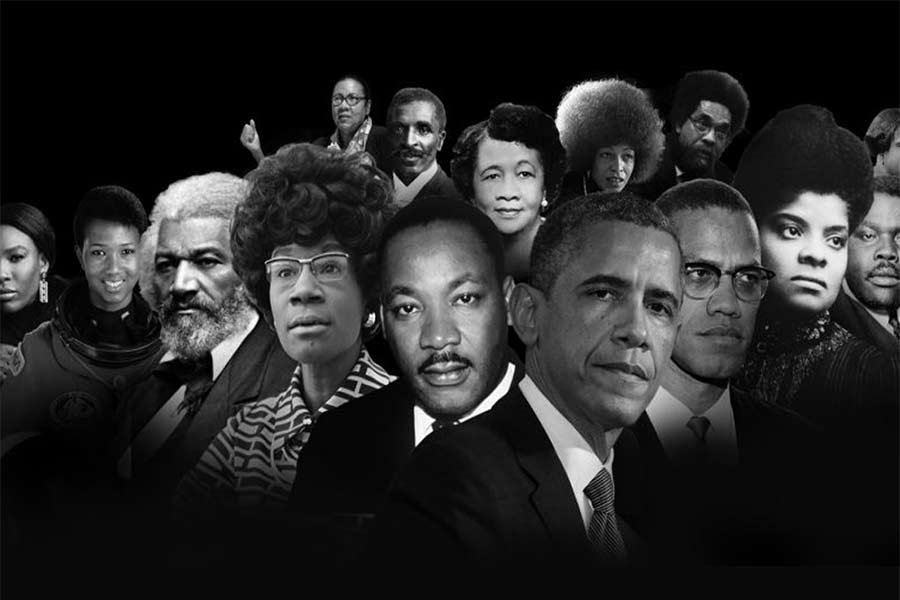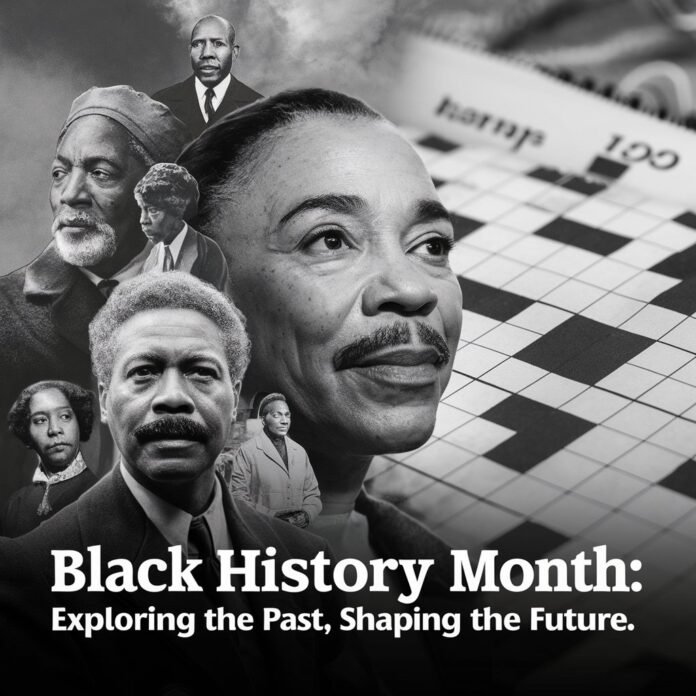Introduction to Black History Month
Black History Month Abbr NYT is a significant annual observance in the United States, dedicated to celebrating the achievements, contributions, and history of African Americans. Held every February, it is a time to honor the past and recognize the ongoing struggle for equality and justice. The month-long celebration includes educational events, performances, and discussions aimed at raising awareness and fostering understanding.
Here is the answer for the crossword clue “Black History Month Abbr NYT“ last seen in the New York Times Mini puzzle. The abbreviation is typically “BHM.” Additionally, there are 40 possible answers, each providing a clue to this significant cultural event. These clues help us remember and honor the achievements and history of African Americans.
Origins and Significance
Black History Month originated from “Negro History Week,” established in 1926 by Carter G. Woodson, a prominent African American historian. Woodson chose the second week of February to coincide with the birthdays of Abraham Lincoln and Frederick Douglass, two figures who played crucial roles in ending slavery. In 1976, the celebration was expanded to a month, and since then, every U.S. president has designated February as Black History Month.
Black History Month in Crosswords
The term “Black History Month: Abbr.” is a common clue in crossword puzzles, including the well-known New York Times (NYT) Mini puzzle. Crossword enthusiasts often encounter abbreviations and references to historical events and figures, making it essential to understand their context and significance.
Understanding the Abbreviation
In crossword puzzles, the abbreviation for Black History Month is typically “BHM.” This abbreviation is widely recognized and used in various contexts, from educational materials to social media hashtags. The abbreviation encapsulates the essence of the month-long celebration, making it a convenient shorthand for discussing and promoting awareness.
The Role of the New York Times in Promoting Black History
The New York Times has played a pivotal role in promoting and educating the public about Black History Month. Through its crossword puzzles, articles, and editorials, the NYT has helped to raise awareness and encourage dialogue about the contributions of African Americans throughout history.
Crossword Clues and Cultural Awareness
Crossword puzzles are more than just a pastime; they serve as a tool for cultural education and awareness. By including clues related to Black History Month, the NYT and other publications help to keep the conversation about African American history alive and relevant. These clues challenge readers to think critically and explore the rich tapestry of African American experiences.
Exploring the Clues: Beyond the Abbreviation
While “BHM” is a common abbreviation, crossword puzzles often feature a variety of clues related to Black History Month. These clues may reference notable figures, historical events, or cultural milestones. Here are a few examples:
Famous Figures
- Harriet Tubman – Known for her role in the Underground Railroad, helping enslaved people escape to freedom.
- Martin Luther King Jr. – A leader of the civil rights movement, famous for his “I Have a Dream” speech.
- Rosa Parks – Known for her pivotal role in the Montgomery Bus Boycott.

Historical Events
- Emancipation Proclamation – Issued by President Abraham Lincoln, declaring the freedom of all enslaved people in Confederate states.
- Brown v. Board of Education – A landmark Supreme Court case that declared segregation in public schools unconstitutional.
Cultural Milestones
- Harlem Renaissance – A cultural, social, and artistic movement in the 1920s that celebrated African American culture.
- Black Lives Matter – A movement advocating for racial justice and equality, highlighting the ongoing struggles faced by African Americans.
The Impact of Black History Month on Society
Black History Month has a profound impact on society, fostering a greater understanding and appreciation of African American history and culture. It serves as a reminder of the contributions of African Americans to the nation’s history and encourages ongoing efforts to achieve equality and justice.
Educational Initiatives
During Black History Month, schools and educational institutions across the country engage in various activities to educate students about African American history. These initiatives include:
- Lectures and Workshops: Experts and historians share their knowledge and insights on topics related to African American history and culture.
- Art Exhibitions: Showcasing the work of African American artists, highlighting their contributions to the art world.
- Film Screenings: Documentaries and films that explore the lives and achievements of notable African Americans.
Community Events
Community organizations and local governments also play a crucial role in celebrating Black History Month. They organize events such as:
- Parades and Festivals: Celebrations that bring together people from all walks of life to honor African American history and culture.
- Storytelling Sessions: Sharing the stories and experiences of African American individuals and communities.
Media Coverage
Media outlets, including the New York Times, dedicate significant coverage to Black History Month, featuring stories and interviews with prominent figures, as well as exploring lesser-known aspects of African American history.
The Future of Black History Month
As society continues to evolve, the celebration of Black History Month will likely expand and adapt to reflect the changing landscape of African American experiences. Here are a few trends and developments to watch for:
Digital and Social Media
With the rise of digital and social media platforms, Black History Month has found new avenues for expression and engagement. Social media campaigns, online events, and virtual discussions have become increasingly popular, allowing people from around the world to participate and contribute.
Inclusion and Diversity
The conversation around Black History Month is becoming more inclusive and diverse, encompassing a broader range of perspectives and experiences. This inclusivity extends to the LGBTQ+ community, people with disabilities, and other marginalized groups within the African American community.
Continued Advocacy
Black History Month serves as a platform for advocacy and activism, highlighting the ongoing struggles and challenges faced by African Americans. Advocacy groups and organizations use this time to raise awareness about issues such as systemic racism, police brutality, and economic inequality.
Conclusion
Black History Month is a vital observance that honors the rich history and contributions of African Americans. Through its inclusion in crossword puzzles and media coverage, the New York Times plays a significant role in promoting awareness and understanding of this important month. By exploring the clues and their meanings, we gain a deeper appreciation for the achievements and struggles of African Americans throughout history. As we look to the future, it is essential to continue advocating for equality and justice, ensuring that the stories and experiences of African Americans are celebrated and remembered.
FAQs About Black History Month Abbr NYT
1. What does the abbreviation “BHM” stand for in the New York Times crossword?
BHM stands for Black History Month, a month-long celebration in February dedicated to honoring the achievements and contributions of African Americans.
2. How does the New York Times contribute to Black History Month?
The New York Times contributes to Black History Month through its crossword puzzles, articles, and editorials that highlight the history and achievements of African Americans.
3. What are some common crossword clues related to Black History Month?
Common crossword clues related to Black History Month include references to notable figures such as Harriet Tubman and Martin Luther King Jr., historical events like the Emancipation Proclamation, and cultural milestones such as the Harlem Renaissance.
4. How can I learn more about Black History Month?
You can learn more about Black History Month by attending educational events, reading books and articles on African American history, and participating in community events and discussions.
5. Why is Black History Month important?
Black History Month is important because it raises awareness about the contributions and struggles of African Americans throughout history. It encourages dialogue, fosters understanding, and promotes efforts toward equality and justice.
6. How can I participate in Black History Month?
You can participate in Black History Month by attending local events, supporting African-American-owned businesses, educating yourself about African American history, and engaging in conversations about race and equality.




